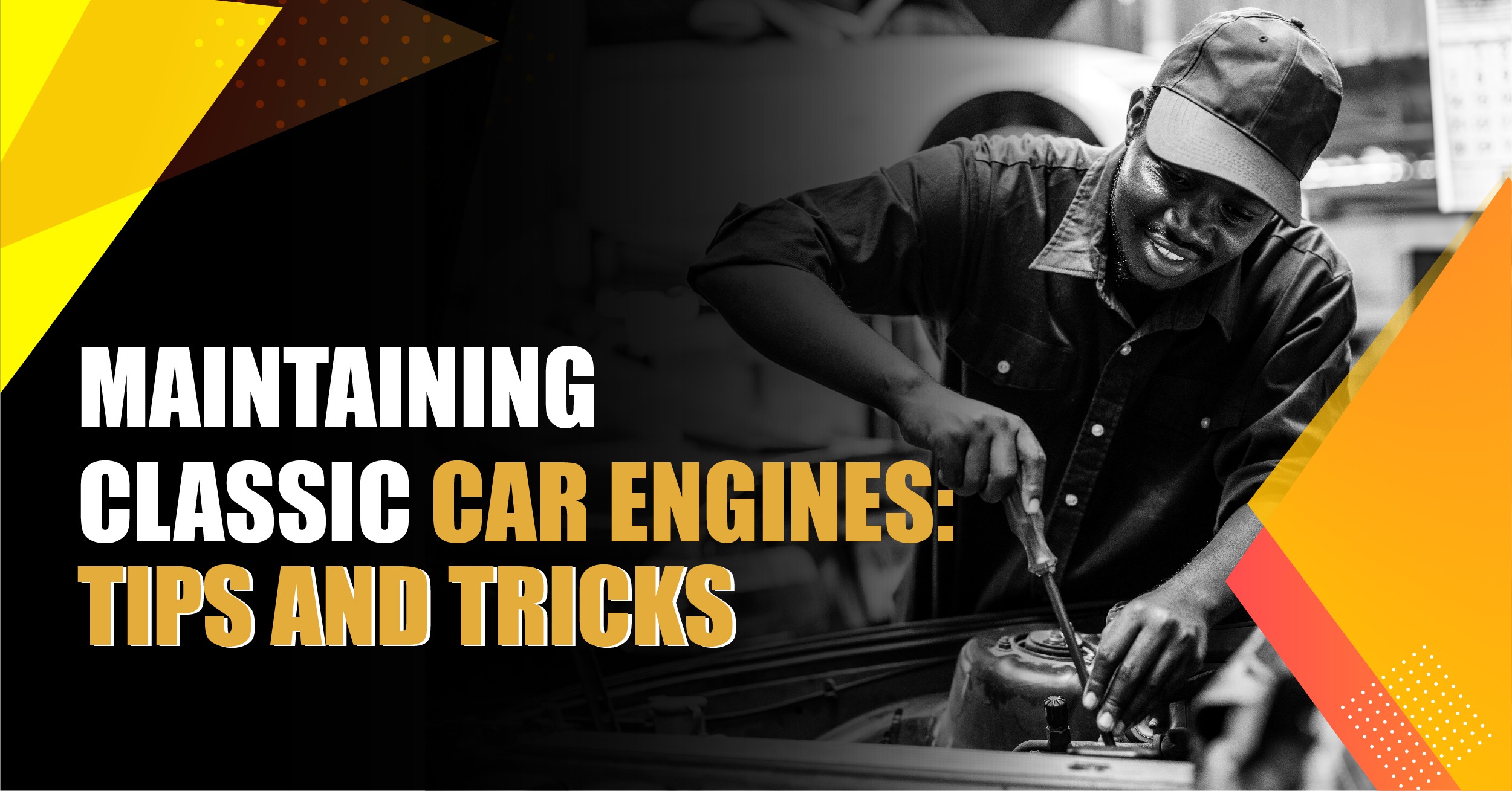Classic cars are a source of pride and joy for many enthusiasts, but they also require special care and attention to keep them running smoothly and reliably. One of the most important aspects of classic car maintenance is choosing and using the right engine oils and lubricants. Engine oils and lubricants are essential for the lubrication, cooling, cleaning, and protection of the internal combustion engines. They can also improve the performance, fuel efficiency, and longevity of the engines. However, not all engine oils and lubricants are suitable for classic cars, and using the wrong ones can cause damage or reduce the engine’s efficiency. In this post, we will explain how to choose the right engine oils and lubricants for your classic car engine.
How to Choose the Right Engine Oils and Lubricants for Your Classic Car Engine
There are many factors to consider when choosing the right engine oils and lubricants for your classic car engine, such as the type, grade, viscosity, additives, and compatibility of the products. Here are some tips to help you make the right choice:
• Type: There are two main types of engine oils: mineral and synthetic. Mineral oils are derived from crude oil and are cheaper and more widely available. Synthetic oils are manufactured from chemical compounds and are more expensive and less common. Synthetic oils have some advantages over mineral oils, such as better resistance to oxidation, thermal breakdown, and sludge formation, as well as better performance in extreme temperatures and conditions. However, synthetic oils may not be compatible with some classic car engines, especially older ones, as they may cause leaks or damage the seals and gaskets. Therefore, it is advisable to consult your owner’s manual or a qualified mechanic before using synthetic oils in your classic car engine.
• Grade: The grade of the engine oil indicates its quality and performance. The most common grading system is the API (American Petroleum Institute) classification, which consists of two letters: S for gasoline/petrol engines and C for diesel engines, followed by another letter that indicates the level of performance. For example, API SN is the highest grade for gasoline/petrol engines, while API CJ-4 is the highest grade for diesel engines. The higher the grade, the better the engine oil can resist wear, deposits, and oxidation. However, higher grades may not be suitable for some classic car engines, especially older ones, as they may have different specifications and requirements. Therefore, it is advisable to follow the manufacturer’s recommendations or consult your owner’s manual or a qualified mechanic before choosing the grade of the engine oil for your classic car engine.
• Viscosity: The viscosity of the engine oil indicates its resistance to flow. The most common viscosity rating system is the SAE (Society of Automotive Engineers) classification, which consists of two numbers separated by a W (winter). For example, SAE 10W-40 means that the engine oil has a viscosity of 10 at low temperatures and 40 at high temperatures. The lower the number, the thinner the oil and the easier it flows. The higher the number, the thicker the oil and the harder it flows. The viscosity of the engine oil affects its lubrication, cooling, and fuel efficiency. Thinner oils can provide better lubrication and cooling, as well as lower friction and fuel consumption. Thicker oils can provide better protection and sealing, as well as higher oil pressure and stability. However, the viscosity of the engine oil should match the operating temperature and condition of the engine. Too thin or too thick oils can cause damage or reduce the engine’s efficiency. Therefore, it is advisable to follow the manufacturer’s recommendations or consult your owner’s manual or a qualified mechanic before choosing the viscosity of the engine oil for your classic car engine.
• Additives: Additives are substances that are added to the engine oil to enhance its properties and performance. There are many types of additives, such as anti-wear, anti-oxidant, detergent, dispersant, anti-foam, viscosity index improver, and friction modifier. Additives can provide various benefits, such as reducing wear, deposits, and corrosion, improving cleanliness and stability, and modifying friction and viscosity. Therefore, it is advisable to choose the engine oil that has the right amount and type of additives for your classic car engine, and avoid using any additional additives unless necessary or recommended by the manufacturer or a qualified mechanic.
• Compatibility: Compatibility is the ability of the engine oil to work well with the engine and its components, such as seals, gaskets, metals, and plastics. Compatibility is affected by the type, grade, viscosity, and additives of the engine oil, as well as the age, condition, and specification of the engine. Incompatible engine oils can cause leaks, damage, or performance issues. Therefore, it is advisable to choose the engine oil that is compatible with your classic car engine.
How to Use the Right Engine Oils and Lubricants for Your Classic Car Engine
Once you have chosen the right engine oils and lubricants for your classic car engine, you should also use them properly and regularly to maintain your engine’s health and performance. Here are some tips to help you use the right engine oils and lubricants for your classic car engine:
• Check and change the engine oil: You should check the engine oil level and condition regularly, at least once a month or before a long trip, and keep the oil topped up. You should also change the engine oil and filter regularly, at least once a year . You should also keep an eye out for leaks or signs of contamination, such as water, fuel, or metal particles, and fix them as soon as possible. Changing the engine oil and filter can prevent sludge buildup and engine wear, which can damage the engine components and reduce the engine’s efficiency.
• Check and change the differential oil and transmission fluid: You should also check and change the differential oil and transmission fluid regularly, at least once a year. You should also use the recommended gear oils or transmission fluids that have the right viscosity and additives for your classic car engine. Changing the differential oil and transmission fluid can prevent friction, heat, and wear, which can affect the transmission and drivetrain.
• Check and change the coolant: You should also check and change the coolant regularly, at least once a year or every 80,000 Kms, whichever comes first. You should also use the recommended coolant type and mixture for your classic car engine. Changing the coolant can prevent overheating, corrosion, and deposits, which can damage the cooling system and the engine.
• Check and change the brake fluid: You should also check and change the brake fluid regularly, at least once a year or every 50,000 kms, whichever comes first. You should also use the recommended brake fluid type and grade for your classic car engine. Changing the brake fluid can prevent moisture, air, and contamination, which can affect the braking system and the safety.
Conclusion
Maintaining classic car engines is not a difficult task, but it requires some knowledge and care. Choosing the right engine oils and lubricants can make a big difference in your engine’s health and performance.
If you are looking for high-quality and affordable engine oils and lubricants for your classic car engine, you can check out LubePlus Energies, a fast-growing brand that provides lubrication solutions for the automotive and industrial sector globally. LubePlus Energies offers a wide range of high-quality lubricants for different types of engines and applications. LubePlus Energies also provides on-site inspections and consultations to help you choose the best lubricants for your specific needs. Visit their website today and discover the best engine oils and lubricants for your classic car engine.






